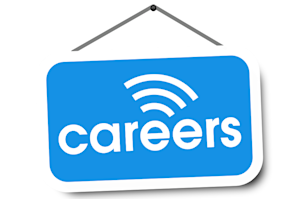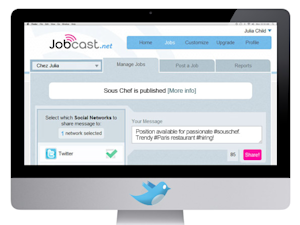
Can You Be Found?
OK – show of virtual hands. How many of you have googled a candidate to see what comes up?
I’ll admit it. I’ve done it, and it’s not very HR of me – but some candidates who may have thought they were perfect will have ended up on my “do not invite” list because of their terrible Twitter feeds full of booze and profanity. Some had written blogs full of poor grammar and spelling mistakes.
And they’re googling you back, if they’ve got any sense. But what if they’re desperate to work for you, and they just don’t know it. How are they ever going to find out?
Sure, you can post on job boards and you can get a great recruitment agent on board – but sometimes the best people are the ones that have targeted you, and not the other way round. Being findable is half the job these days – so here’s our quick & easy guide to ensuring that you can be found – cutting down the hassle of going out & doing the finding!
Optimising your career pages
This is a simple quick win. A lot of people search for the job title they want, and many search for the company they want to work for.
For instance, they might be searching for “PHP Developer London”, or they might be searching for “Your Company Careers” – so make it easy to find the right page first…
1) Ensure that your page title (meta title) includes Job title + location + Company name + “Careers” – so it could be “PHP Developer London | Your Company Careers”
2) Ensure that the H1 includes the Job Title and the Location. Search engines tend to read pages from top to bottom, looking for key information. The page title and the H1 are two of the first things they look at.
3) Ensure that you put the job title within the body of the text, and write at least 200 words. ‘Thin’ content doesn’t tend to rank well. Be as descriptive as you can.
4) You’re going to be competing in the search engine results – so make your Meta Description as captivating as possible. Add in a call to action, and you could gain a larger proportion of the clicks from the results page.
Optimising for users
A lot of SEO these days is actually about optimising the page for your users. Google know when a high proportion of your visitors bounce back from your page to the search results within just a few seconds. If that’s happening a lot, you’ll get demoted in the rankings.
It’s only fair.
So do what you can to make the user experience a nice one.
1) If you have a video promoting how great it is to work in your company, use it. My former employer did this & significantly increased time on site. It’s cheesy, but it works.
2) Make the text readable. Nobody likes big blocks of text. Separate out paragraphs, use sub-headings, let people skim-read (because that’s what they do).
3) Be clear with your calls to action. Don’t hide them, don’t exaggerate them, just be clear about what visitors are going to do & what they’re going to get.
4) Make it quick. Page load time is a ranking factor – if you have big images on the page, or lots of fancy code, you may be slowing yourself down, and pushing yourself down the rankings. Keep your pages as light as possible.
Everyone’s googling each other, and it’s your candidates’ responsibility to ensure that they’re keeping their own online profiles clean. It’s your responsibility to ensure that a) you can be found, and b) your careers pages are read.
PS
This awesome post was written by guest blogger Gareth Cartman.
Gareth is director of digital marketing for Clever Little Design, and has experience in HR, marketing & publishing. You can find him @clevergareth on Twitter or on the CLD blog:http://www.cleverlittledesign.co.uk/blog.
Gareth’s blog is a wealth of information, and extremely fun to read. He’ll be contributing his expertise and clever ideas regularly on the Jobcast blog, so if you have any questions for Gareth, let us know in the comments!




